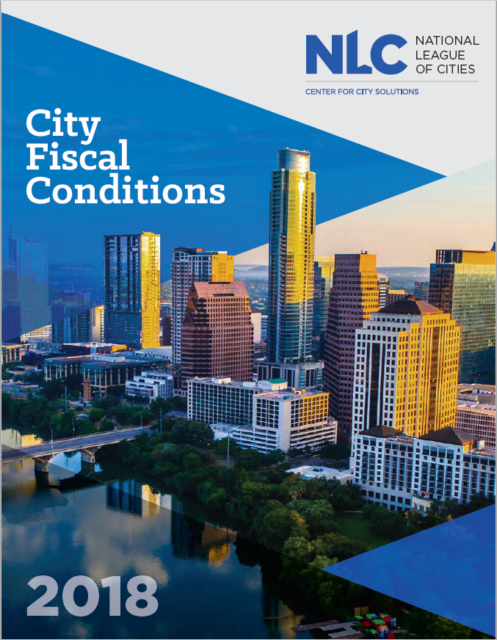The 2018 City Fiscal Conditions survey indicates that slightly more finance officers than last year are optimistic about the fiscal capacity of their cities. However, the level of optimism is still far below recent years. Furthermore, tax revenue growth is experiencing a year-over-year slowdown, with the growth in service costs and other expenditures outpacing it. Taken together, the survey results suggest that cities are approaching the limits of fiscal expansion.
- Finance officers from the smallest cities are least likely to report that their cities are better able to meet the fiscal needs of their communities this year over last (63%). Meanwhile, finance officers from cities in the South are most likely to report feeling confident this year (81%).
- General fund expenditures are outpacing revenues, a trend anticipated to continue into next year. Although revenues are not in decline, they grew only 1.25 percent in FY 2017, and are expected to stagnate in FY 2018. Expenditures grew 2.16 percent in FY 2017, with growth for FY 2018 budgeted at 1.97 percent.
- All major tax sources grew slower in FY 2017 than in FY 2016, and all are expected to grow less than one percent in FY 2018. In FY 2017:
- Property tax revenues grew 2.6 percent, compared to 4.3 percent in FY 2016
- Sales tax revenues grew 1.8 percent, compared to 3.7 percent in FY 2016
- Income tax revenues grew 1.3 percent, compared to 2.4 percent in FY 2016
- Cities continue to rely on the same revenue generating actions as they have in the past, namely increasing service fee prices (41%) and property tax rates (28%). This year, fewer cities are instituting new types of fees (18 percent this year versus 26 percent last year).
- Employee wages (88%), public safety (78%) and infrastructure (71%) are the most common areas for which cities increased spending. Fewer cities this year are contracting or privatizing city services and more are increasing spending on personnel and workforce expansion.
- By and large, it is too soon to tell specifically how provisions of the Federal Tax Cuts and Jobs Act of 2017 will impact city finances, except for advance refunding bonds. Thirty-five percent of city finance officers are already seeing negative fiscal impacts associated with the elimination of tax-exempt advance refunding bonds. Sixty one percent report that the loss of this fiscal tool will have negative impacts on future fiscal health.
These trends come at a time when cities have not yet regained losses from the Great Recession and face uncertainty from federal and state partners. Despite these challenges, cities continue to balance their budgets, remain resilient and serve as engines of national economic growth.

